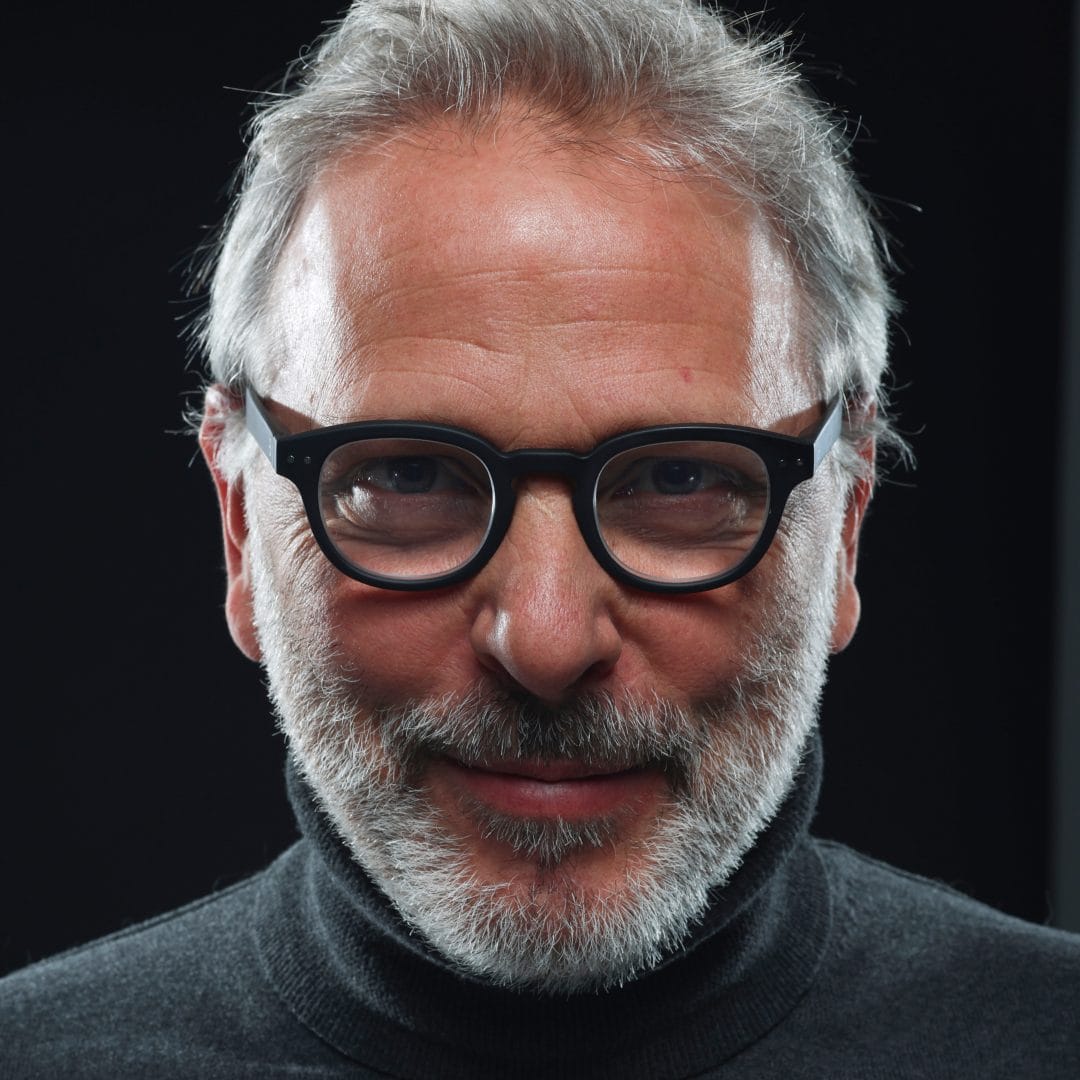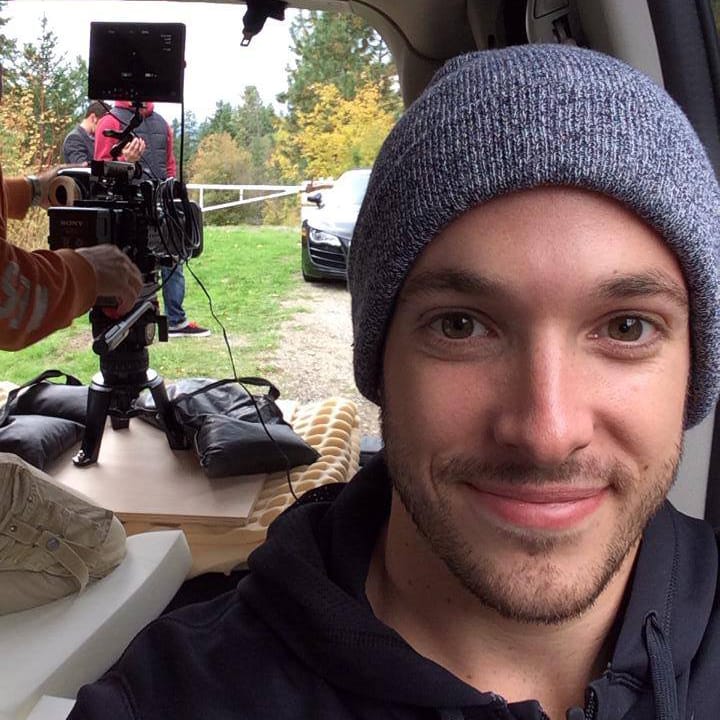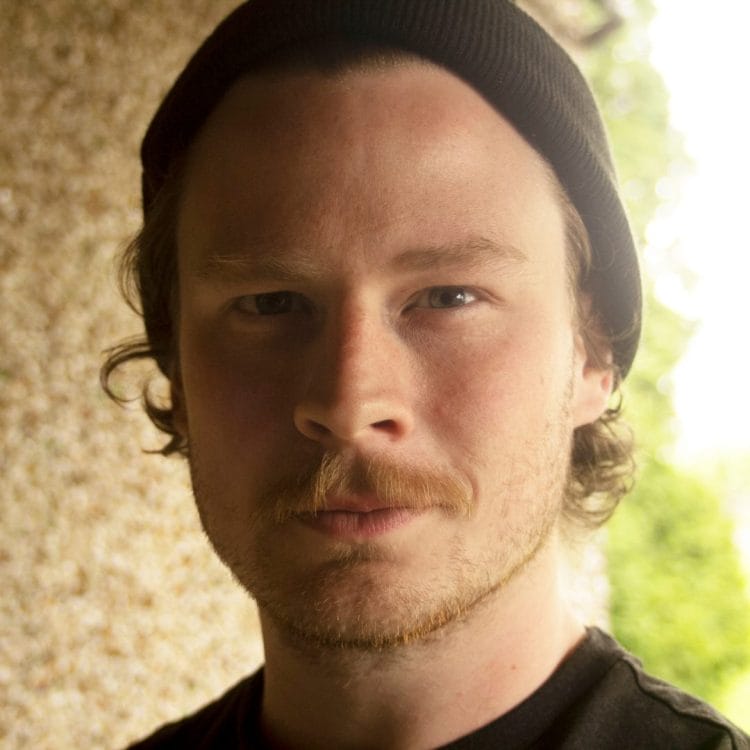Get Info Now
Earn Your Diploma in Professional Filmmaking
Program Highlights
College for Arts and Technology offers two filmmaking programs to kickstart your film career! Dive into the foundational skills with our 12-month Professional Filmmaking Fundamentals program and learn the technical skills required to work on film and TV productions. If you’re looking to explore the film industry in depth, our 18-month Professional Filmmaking covers all the technical aspects and also includes an in-depth understanding of the narrative film process. From Director to camera operator, each role is vital and our digital filmmaking course offers the hands-on, practical experience and industry insight you need to get noticed.
Our 18-month Professional Filmmaking program builds upon the technical knowledge of the Fundamentals program to create a deep understanding of the narrative film process. In our world-class facilities, you’ll learn all the technical skills and industry insights from seasoned industry experts to launch your career in filmmaking. Our 18-month Diploma in Professional Filmmaking is among the best film production schools in Canada and offers students the opportunity to learn:
- Screenwriting
- Cinematography and Production
- Post Production (Adobe Premiere, Adobe After Effects and Adobe CC)
- Visual Storytelling and Writing for Film and Video
- Location Audio for Film and TV
- Narrative Film
- Corporate and Commercial Production
- Marketing for Film and Video
- Segment Direction for Television and Internet
- Business and Entrepreneurialism for Film and Video
- Factual and Documentary Film Production
- Portfolio Production
For those seeking a way to enter into the film industry, our 12-month Professional Filmmaking Fundamentals program is a great place to start! This focused program, taught by seasoned industry experts in our world-class facilities, gives you the opportunity to learn the hands-on techniques required to make your mark in the expanding film industry. This technical program will cover a variety of key skills including:
- Screenwriting
- Cinematography and production
- Post-production (Adobe Premiere, Adobe After Effects and Adobe CC)
- Visual storytelling and writing for film and video
- Location audio for film and TV
- Corporate and Commercial Production
- Introduction to Narrative Film
CAT’s creative and technical programs are directly connected to a creative sector that makes a $6 Billion contribution to the British Columbia economy every year. Graduates from our 2D and 3D animation, filmmaking, graphic design, audio engineering and other programs are among the over 120,000 skilled arts and tech workers employed provincially in this vibrant, constantly growing ‘creative economy’. Just in the past several years alone, CAT graduates were named in the credits for many high grossing films and musical scores, capturing numerous industry awards.
Earn Your Diploma in
Professional Filmmaking
Industry Connections
Professional Filmmakers as your Instructors and mentors.
Let’s Get You Working!
Well-rounded, focused curriculum to get you successfully working as quickly as possible.
Degree Pathway Options
Inquire with a Program Advisor for more information.
Top Tech
Latest technology, facilities and equipment in a dedicated Professional Filmmaking studio-classroom.
Become a Professional Filmmaker
Where Our Alumni are Working
When you’re backed by exceptional curriculum and an education team focused on your success and individuality, the future of employment is bright. Here are just a few places where our Professional Filmmaking alumni have been thriving.
Alumni Feature
Experience the CAT Difference
Why the Best Choose Us
Here are a few reasons why you’ll be happy you chose College for Arts and Technology:
Hands-on, employment-focused education.
Employment-focused programs delivering the soft skills you need for lasting career success and hands-on experience with the latest, industry-standard technology. Your career starts here!
Personalized support from start to finish.
Financial guidance? We’ve got you covered. Career advice after graduation? We wouldn’t have it any other way. You’re more than a student number to us. We create a personalized experience that you won’t get anywhere else.
More one-on-one time with your Instructors and mentors.
Small class sizes mean you get more facetime and critical feedback from your education team, to achieve real growth and success.
Quality you can fact-check.
College for Arts and Technology holds a full designation through Education Quality Assurance and the Private Training Institutions Regulatory Unit. You’ll only get the best at College for Arts and Technology.
Department Head
Victor Poirier

Victor Poirier is a seasoned artist, seamlessly blending his passion for fine arts, photography, the moving image, and entrepreneurship in a remarkable, and award-winning career spanning broadcast television and education.
Victor’s artistic journey began at the age of 12, when he picked up a camera and began exploring his surroundings through the lens. This creative exploration eventually led to his first day on set, when, at just 17, Victor landed a position on a National Film Board (NFB) production. Afterwards, Victor went on to attend the University of Ottawa, where he delved into the world of fine arts. His time at the university not only honed his technical skills but also fueled his creative spirit, setting the stage for a lifelong dedication to visual arts.
Embracing an entrepreneurial spirit, Victor founded Erebus Productions and Panfilms, earning national and international awards for excellence in filmmaking. In 2001, he moved to Scotland, directing for BBC, ITV, STV, and BBC Gaelic, creating over 150 primetime television episodes.
Returning to Canada in 2010, Victor led the Film and Photography departments at College for Arts and Technology, reshaping curriculum and facilities with his years of industry expertise. Under his guidance, both departments are flourishing, producing talented graduates prepared for the evolving film and photography landscape.
Victor’s artistic journey continues to evolve, driven by a curiosity to explore new perspectives and narratives. His dedication to timeless storytelling through the lens defines a career harmonizing creativity, technical skill, and a relentless pursuit of excellence.
Quarter Descriptions
Here’s How You’ll Build Your Filmmaking Skills
Quarter 1
In your first quarter, you will be introduced to nonlinear editing, basic camera operation, gripology, and lighting for video. Each course has been designed to dovetail into the next and offer the student a thorough understanding of the basic operation of the camera. You will be introduced to digital compositing techniques, three and four point editing, computer graphics, file management and format conversion. You will also be immersed into the world of visual storytelling by examining individual components, aspects and concepts concerned with the visual medium. You will be introduced to the role of Joseph Campbell’s Hero’s Journey in film, how to format a screenplay, how to structure a screenplay’s plot points, and write visually for film. Specific detail is paid to the relationship between the screenwriter, director, and the audience. Emphasis is placed on understanding the basics of narrative, aesthetics, and the practical application of the techniques behind these theories.
Quarter 2
Quarter 3
In your third quarter, you will start to explore some of the specializations in the film industry, including television production, music video, and short form documentary. The role of the Producer will be further examined to take control over the organizational and business requirements of running a set and or an independent production company. One student’s script from the previous term will be chosen to go into production in this term; this will be a mentored shoot with an industry professional guiding the production forward. All positions will be held by students, including director in training. The term will also see you develop skills at camera movement through the use of cranes, motorized heads and sliders, 3 AXIS gimbal rigs, handheld rigs and more. You will explore film history with specific focus on German Expressionism, Soviet Realism, Surrealism, and French New Wave.
Quarter 4
Quarter 5 (18 Month Program Only)
In your fifth quarter, you will use all the expertise and knowledge that you’ve gathered in the first half of the program, to complete a major narrative film project. You will continue to dive deeper into visual effects and motion graphics, which are used in creating motion graphics and special effects in film and television. You and your class in a group effort will complete a half hour factual television production which includes the development of the project, the casting of a presenter for the TV show, the production and postproduction of the program.
Quarter 6 (18 Month Program Only)
In your sixth and final quarter of the program, you will explore the history, processes, technologies, theory, and business of film and TV production from multiple perspectives, including aesthetic and critical socio-cultural perspectives, in your Documentary Production course. You will take a course in digital marketing where you will be introduced to branding concepts, SEO, and copywriting, and you will build a personal /business website which will include your demo reel, client pages and a blog in preparation of your job search and or business start-up. You will research, develop and produce a long form factual documentary as a final major project in the program and prepare for your final show and graduation.
Surround yourself with like minded people, lose the unnecessary distractions and be proactive, don’t wait for opportunities, make them. It won’t be easy and if it is it won’t last so work hard, it will pay off. Also don’t be scared to take a job or work on a film that isn’t your dream project. Take it as a challenge to make a dull thing amazing. I like to use …
I’ve worked on ‘TED Talks’, I was a video engineer for the ‘Oxford Stomp’ at the Calgary Stampede, and I was the handheld cameraman on ‘Siggraph 2018’ (biggest Tech conference in North America). I was also a key grip on ‘The Nature of Things’ with David Suzuki. CAT gave me the tools to succeed in my industry, as well as iron-clad confidence that the stories I have to tell will …
The best part of the Digital Filmmaking program at College for Arts and Technology was getting to learn from real film industry professionals. It helped me in every way to see what mistakes I should not make in real life in the industry. I didn’t get jobs immediately after graduation, but I continued to build my portfolio, and took contracts that started to lead to jobs. I’ve since started my …
Frequently Asked Questions
Let’s Get You Answers
Are there a lot of jobs available in the film industry?
Do I need to own my own camera to apply to CAT’s Professional Filmmaking program?
When should I apply to the Professional Filmmaking program?
Is this a technical or artistic program?
Filmmaking is an exciting and dynamic industry, with a blend of artistic and technical skills needed to succeed. Our program covers both aspects in depth, giving you the opportunity to develop both your creative eye and technical prowess. With this blend of skills, you will not only become highly skilled in the technical side of things, lighting, camera operation, and post-production, but will hone in on your conceptual and creative style, setting you apart from the competition. Additionally, all of our programs, including Professional Filmmaking, include Professional Development courses, delivered by our Student Services Department. Career counseling, job search skills, and self-development are all included in these valuable courses and workshops, giving you the leg up you need to create lasting success as a filmmaker. For complete details on our Professional Filmmaking Program, including curriculum, book an appointment to tour the film studios on campus, meet current filmmaking students and our filmmaking faculty.
Do I need film experience prior to applying to this program?
What gear does the school provide that I will have access to as a filmmaking student?
Can I become a film Director after graduation from this program?
Why choose College for Arts and Technology’s Professional Filmmaking program over one offered in the Vancouver area?
What does a day in the life of a Professional Filmmaking student at CAT look like?
A day in the life of a Professional Filmmaking student at CAT is varied and as a student you may find yourself in a few different classrooms around campus. Schedules vary from Quarter to Quarter, so this is just an example of what you could expect.
If you drive, you’ll park your car in our student-designated parking lot and make your way across the Landmark Plaza to our campus! If you’ve opted to walk, bike or take the bus, you’ll find lots of great scenery on the short walk from the bike lock-up or transit stop to campus. You have a production class for your first block, Cinematography and Production, and you’re shooting on location with your classmates at Knox Mountain, a prominent fixture of the local landscape. You know you’re going to need some gear and you’ve arranged to meet your Instructor and classmates at the Equipment Cage first thing to sign out what you’ll need for the morning. After signing out the necessary gear, your Instructor preps the class by reviewing the shooting plan as well as safety considerations. You head off to the mountain and spend the morning watching the city come to life through your lens. Is this really school?
After getting the shots your group needs, you head back to campus, return your gear to the Equipment Cage and then it’s lunchtime! You hit up one of the many great eateries in the Landmark Plaza area. Mmmmm….sushi is on the menu today.
After fuelling up, you head back to the main campus building for a Professional Development class. Today you’re going to be diving into Personality Dimensions and starting on a self-portrait assignment. You’ll also be discussing how to find the balance between being a creative individual and securing success for yourself professionally, a topic we take great pride in at CAT. #nostarvingartistshere.
Your last class of the day is Post Production, so you head to the computer lab to greet your classmates. Today in class, you’re going to start learning some more advanced post production techniques in After Effects. You can’t wait to put some of this new knowledge to work on your Knox Mountain footage.
After class, you decide to meet up with some classmates to review your footage from the morning and then as a group you head downtown to enjoy the evening. Let’s do this again tomorrow, shall we? New day, new classes, new opportunities.
If you’re interested in touring our campus and seeing our Professional Filmmaking classrooms, you can do so by completing an online inquiry form. Once submitted, a Program Advisor will follow up with you, so make sure to mention you’d like a tour!




















